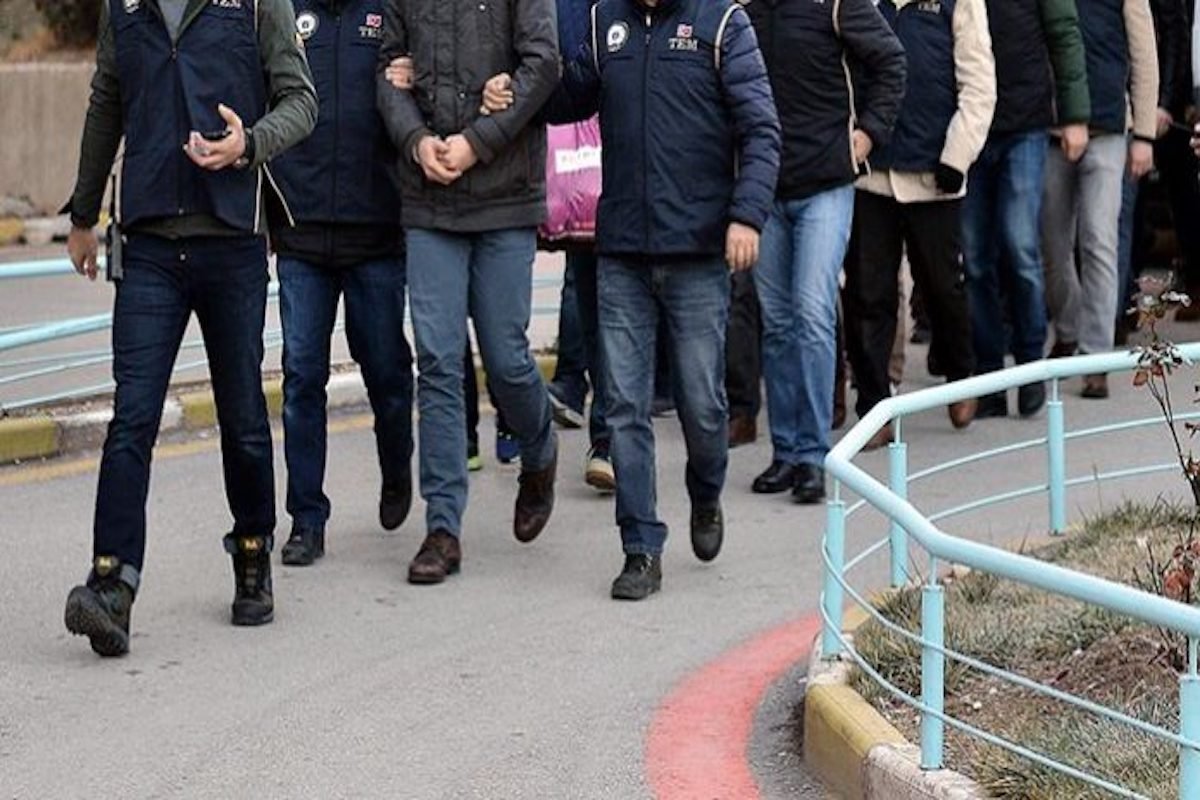
Emine Özben whose husband Mustafa Özben was abducted on May 9, 2017, said Turkish police and prosecutors have been unwilling to investigate the missing case thoroughly.
Speaking to DiHaber, Emine Özben said there have been several witnesses who come forward about the kidnapping and CCTV video camera recordings were available on the area where the abduction took place. She lamented, however, that authorities are not taking the case seriously and fail to pursue an effective investigation.
Mustafa Özben, a Bar-registered lawyer and academic at Turgut Özal University that was shut down by the government in July 2016 over alleged link to the Gülen movement, was abducted by three people on the corner of Güven Street and Kıvanç alley in Şentepe district of Ankara. On May 9, he departed from his home at 12:30 pm on his car with plate No.06 GBL 51 to drop his daughter at Şehit Mahmut Özdemir Elementary school. After school, he stopped by the ATM to withdraw cash and went for a shopping. As he walked towards his car from the store, he was abducted by three people.
Emine Özben filed a missing case with the Şentepe police department 24 hours later but was shocked to learn that her husband was a wanted man on alleged links to the Gülen movement. “We heard that for the first time,” she said, recalling that police told her the husband may have fled. “Police did not believe that my husband was kidnapped.” She said police knew all the details, the abduction, how it happened and where it happened before she filed the missing report. They told her to take the case to celebrity TV host Müge Anlı who has a TV program on unsolved murders and missing cases.
Emine Özben has done her own investigation in the area and listed her findings in the compliant she filed with the prosecutor’s office. According to her investigation, witnesses said there was a Volkswagen Tranpsorter van parked before the Kaşıkçı Pharmacy, waiting for her husband to come out from the store. As he walked towards his car, three man pushed him to the van. According to the witnesses, one man was wearing a black ski mask.
Police showed up at the scene as Emine Özben was talking to the witnesses, and told the people in the neighborhood that her husband was a fugitive. When she returned to the scene few days later, witnesses were unwilling to talk to her.
Two days later, she received a mysterious call from her husband around 22:00 pm at night. The call originated from phone number 0537047… and her husband’s voice sounded cracked and exhausted. “His sound was not good, sounded worn out and hesitant. He was afraid of his life. He was trying to understand if anything happened to us,” she said, before the short conversation was cut-off.
In the meantime, a witness statement from a white appliance store owner identified with names only as E.A. has emerged, stating that he saw a man carrying a plastic shopping bag was forced to get on the black Transporter van. “The doors of the van was shut and sped away before the man get a chance to shout,” he said, recalling that somebody in the neighborhood called the police to report the abduction. He stated that he did not see the faces of abductee and the men who kidnapped him.
Emine Özben and her lawyers talked this witness and was able to collect more detailed description on what happened on that day. The lawyers were surprised that E.A.’s original testimony was not fully entered into police records, suggesting police is trying to hush-up the investigation. Özben also noted that there were dozens of CCTV video surveillance cameras in the area but police did not thoroughly investigate those recordings.
Özben appealed Ankara prosecutor’s office to find out about the black van, trace the mysterious phone call she received and collect witness testimonials in the area.
She said she has a hard time to explain her three daughters, aged 5 months, 4 years and 10 years, about what happened to their father. “My kids are going through a trauma,” she noted.
Mysterious disappearances involving already-victimized opposition groups have become a common occurrence in Turkey in the aftermath of a controversial coup attempt on July 15, 2016.
At least 12 cases of abduction including that of Cemil Koçak, who became the last victim of abductions, have been reported so far. The abductions appear to have been perpetrated by elements linked to the Turkish government as part of an intimidation campaign targeting critics and opponents of Turkey’s autocratic President Recep Tayyip Erdoğan. Most victims are believed to be affiliated with the Gülen movement which is inspired by the US-based Turkish Muslim scholar Fethullah Gülen who has been a vocal critic of Erdoğan on corruption and Turkish government’s aiding and abetting of Jihadist groups.
In one case confirmed by Stockholm Center for Freedom, an abductee was kept as a hostage and tortured for 42 days in an unknown location by men who identified themselves as police. Yet, he was later turned over to police for official custody and forced to sign a confession to a crime he said he had not committed. In many cases, the evidence such as CCTV footages by suggest a similar pattern by which a black Transporter Volkswagen was used in whisking away innocent people.
In a parliamentary question motion meant for Prime Minister Binali Yıldırım on April 25, the main opposition Republican People’s Party (CHP) deputy Sezgin Tanrıkulu asked why an effective investigation is not being conducted to find these people and who abducted them. Tanrıkulu also said there is widespread suspicion about the abduction of these people by the Turkish National Intelligence Organization (MİT).
The government has never made any statement to these reports despite it was even raised in the Parliament by an opposition lawmaker. Families of victims complain that prosecutors and police show indifference to their complaints and they claim that authorities are unwilling to investigate cases.
A controversial military coup attempt on July 15 killed over 240 people. Immediately after the putsch, the Justice and Development Party (AKP) government along with Turkey’s autocratic President Recep Tayyip Erdoğan pinned the blame on the Gülen movement.
Fethullah Gülen, who inspired the movement, strongly denied having any role in the failed coup and called for an international investigation into it, but President Erdoğan — calling the coup attempt “a gift from God” — and the government initiated a widespread purge aimed at cleansing sympathizers of the movement from within state institutions and jailing them en masse on trumped-up charges.
The Islamist government of Turkey’s autocratic President Recep Tayyip Erdoğan has labeled the Gülen movement as “FETÖ,” a derogatory term and acronym for the “Fethullahist Terrorist Organization.” The movement, inspired by US-based Turkish Muslim intellectual Fethullah Gülen, rejects Turkish government’s accusations as politically motivated. Gülen has been decades-long advocate of science education, interfaith and intercultural dialogue and community contribution. The movement he inspired is active in 180 countries with schools, dialogue centers and cultural institutions.
The movement faces an unprecedented persecution in Turkey where the rule of law has effectively ended with Erdoğan fully controlling all levers of the powers including the judiciary without any checks and balances. At least 161,751 people were detained or investigated and 50,334 people were arrested in Turkey in the framework of the Turkish government’s massive post-coup witch hunt campaign targeting alleged members of the Gülen movement since the controversial coup attempt on July 15, 2016, according to statistics reported by state-run Anadolu news agency by basing on information taken from the officials from Turkey’s Justice Minsitry on June 13.
June 18, 2017















